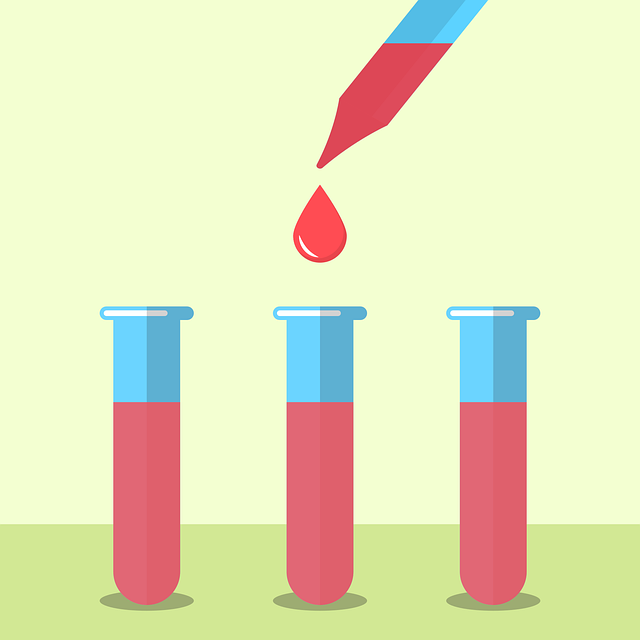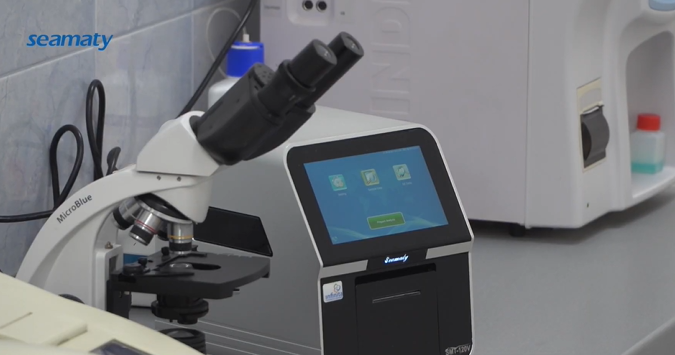release time:2023-04-25 13:30:26
If you've ever been to a doctor's office, chances are you've had a blood test. While these tests can seem scary, they are a vital part of modern medicine. In this beginner's guide, we'll explain what blood tests are, what they can detect, and how to prepare for them.
Blood tests are medical procedures that involve taking a small sample of blood from your body. This sample is then sent to a laboratory for analysis. Blood tests are used to detect and diagnose a variety of medical conditions, and they can also be used to monitor your health and track the effectiveness of a treatment plan.
Blood tests can detect a wide range of medical conditions, including:
While there are many different types of blood tests, the five most common are:
1. Complete blood count (CBC) - This test measures the number of different types of cells in your blood, including red blood cells, white blood cells, and platelets.
2. Basic metabolic panel (BMP) - This test measures the levels of electrolytes, glucose, and kidney function markers in your blood.
3. Lipid panel - This test measures cholesterol and triglyceride levels in your blood.
4. Liver function tests (LFTs) - This test measures liver enzyme levels in your blood to assess liver function.
5. Thyroid function tests - This test measures hormone levels in your blood to assess thyroid function.
Cancer may or may not show up in routine blood work, depending on the type and stage of cancer, as well as the specific tests ordered by the healthcare provider. Some routine blood tests, such as the complete blood count (CBC) and the comprehensive metabolic panel (CMP), may indicate the presence of certain types of cancer or abnormalities in the blood cells that could suggest cancer. However, further diagnostic tests such as imaging studies and biopsies are usually needed to confirm a cancer diagnosis. It's important to discuss any concerns about cancer with a healthcare provider and to undergo recommended screening tests for early detection.
There is no single blood test that can detect all types of cancer. However, some blood tests may indicate the presence of certain types of cancer or abnormalities in the blood cells that could suggest cancer. Here are some examples:
1. Prostate-specific antigen (PSA) test: used to screen for prostate cancer
2. CA-125 test: used to detect ovarian cancer
3. Alpha-fetoprotein (AFP) test: used to detect liver cancer and germ cell tumors
4. Human chorionic gonadotropin (HCG) test: used to detect germ cell tumors and gestational trophoblastic disease
5. Carcinoembryonic antigen (CEA) test: used to monitor certain types of cancer such as colorectal, lung, and breast cancer
It's important to note that these tests are not always specific to cancer and can also be elevated in other conditions or diseases. Further diagnostic tests such as imaging studies and biopsies are usually needed to confirm a cancer diagnosis. It's important to discuss any concerns about cancer with a healthcare provider and to undergo recommended screening tests for early detection.
Before a blood test, your healthcare provider may give you specific instructions depending on the type of test being done. In general, you should:
- Drink plenty of water to stay hydrated.
- Avoid eating or drinking anything (except water) for 8-12 hours before the test if you're having a fasting blood test.
- Avoid strenuous exercise for 24 hours before the test.
- Inform your healthcare provider of any medications or supplements you're taking, as some may interfere with the test results.
When performing a blood test, there are several instruments that are needed to ensure the procedure is safe and accurate. These include:
1. Needle and Syringe or Needle and Collection Tube: A needle is used to puncture a vein in your arm or hand and collect a small sample of blood. The blood is then collected in a syringe or a tube that has a vacuum inside, which helps to draw the blood into the tube.
2. Tourniquet: A tourniquet is used to apply pressure to your arm or hand, which helps to locate a vein and make it easier to insert the needle.
3. Alcohol Swabs: An alcohol swab is used to clean the injection site before the needle is inserted. This helps to reduce the risk of infection.
4. Sterile Gauze or Bandage: Once the needle is removed, a sterile gauze or bandage is applied to the injection site to help stop any bleeding and reduce the risk of infection.
5. Laboratory Equipment: After the blood sample is collected, it is sent to a laboratory for analysis. The laboratory equipment used to analyze blood samples can vary depending on the type of test being performed. Some examples of laboratory equipment that may be used include:
By using the appropriate instruments and laboratory equipment, healthcare professionals can ensure that blood tests are accurate and reliable, helping to diagnose and monitor a wide range of medical conditions.
Blood tests can be intimidating, but they are an essential tool for detecting and diagnosing a wide range of medical conditions. By understanding what blood tests are, what they can detect, and how to prepare for them, you can feel more confident and in control when it comes to your health. If you have any questions or concerns about blood tests, don't hesitate to talk to your healthcare provider. They can provide you with the information and support you need to make informed decisions about your health.
References:
[1] American Society of Clinical Oncology. (2017). Cancer screening overview (PDQ) - patient version. Retrieved from https://www.cancer.gov/about-cancer/screening/patient-screening-overview-pdq
[2]Mayo Clinic. (2021). Cancer diagnosis. Retrieved from https://www.mayoclinic.org/diseases-conditions/cancer/diagnosis-treatment/drc-20370594
[3]National Comprehensive Cancer Network. (2021). Guidelines for detection, prevention, and risk reduction. Retrieved from https://www.nccn.org/guidelines/category_1
[4]Gajra A, Klepin HD, Feng T, et al. Predictors of bone marrow biopsy yield in older adults with acute myeloid leukemia. Am J Hematol. 2015;90(8):E146-E149. doi:10.1002/ajh.24075
[5]Hooft L, Hoekstra OS, Devillé W, et al. Diagnostic accuracy of FDG-PET for lymph node staging in non-small cell lung cancer: a systematic review and meta-analysis. Eur J Cancer. 2010;46(10):1642-1656. doi:10.1016/j.ejca.2010.02.065
[6]Ito K, Schöder H, Teng R, et al. Prognostic value of baseline [18F]fluorodeoxyglucose positron emission tomography and 99mTc-MDP bone scan in progressing metastatic prostate cancer. Clin Cancer Res. 2016;22(23):5757-5763. doi:10.1158/1078-0432.CCR-15-2963
[7]Kattan MW, Hess KR, Amin MB, et al. American Joint Committee on Cancer acceptance criteria for inclusion of risk models for individualized prognosis in the practice of precision medicine. CA Cancer J Clin. 2016;66(5):370-374. doi:10.3322/caac.21339
[8]Souza KCP, Ferreira-Junior JR, Bonfante GM, et al. Diagnostic and prognostic significance of microRNA expression signatures in exfoliative cytology of suspicious thyroid nodules. Thyroid. 2019;29(1):52-61. doi:10.1089/thy.2018.0024

2023-09-27
Discover the top 6 In Vitro Diagnostics (IVD) companies in China revolutionizing healthcare. Explore their cutting-edge technologies, global impact, and strides in medical diagnostics innovation. A glimpse into pioneering players shaping the future of diagnostics.

2022-05-06
Biochemical tests provide a basic assessment of the body's liver function, kidney function, blood glucose, lipids and electrolytes to help doctors prevent, diagnose and treat disease. A sample from a biochemical test that is haemolysed is likely to affect the test results. How can haemolysis affect the biochemical tests?

2021-09-07
The biochemistry machine is mainly used for: clinical blood test routine, cardiac enzyme profile, blood glucose lipid, liver function, kidney function and other routine biochemical index testing. This new medical equipment will not only further meet the actual needs of many hospitals and clinics, but will also greatly advance the development of medical technology.